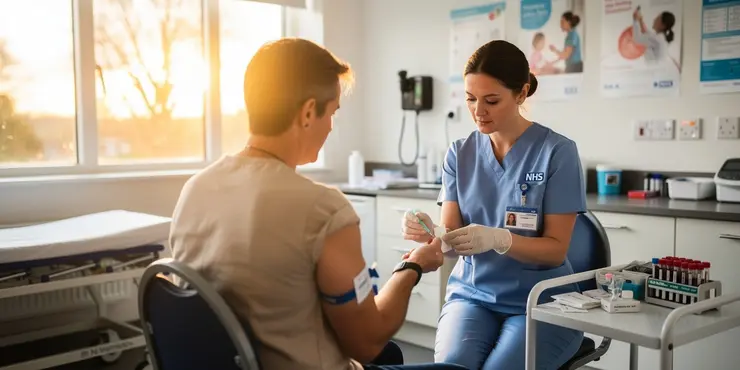
Find Help
More Items From Ergsy search
-
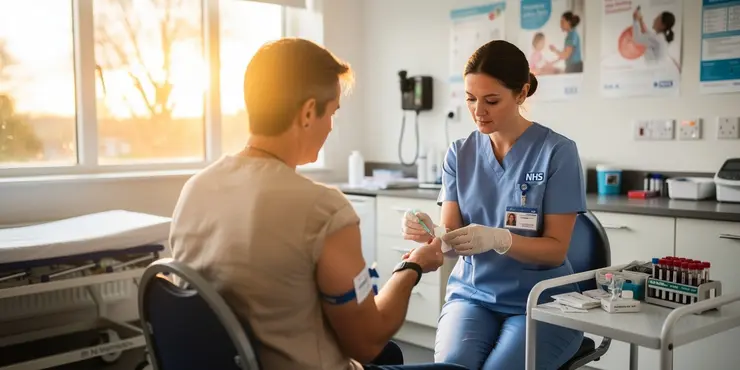
Is Chagas disease a concern with blood transfusions?
Relevance: 100%
-
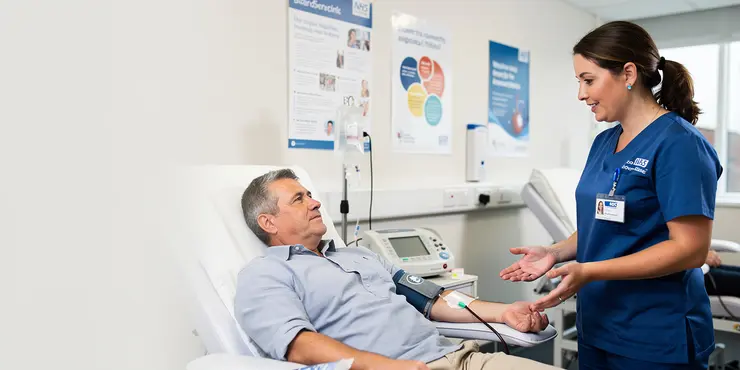
Are there any parasites that can be transmitted through blood transfusions?
Relevance: 64%
-

What diseases can be spread by blood transfusions?
Relevance: 61%
-
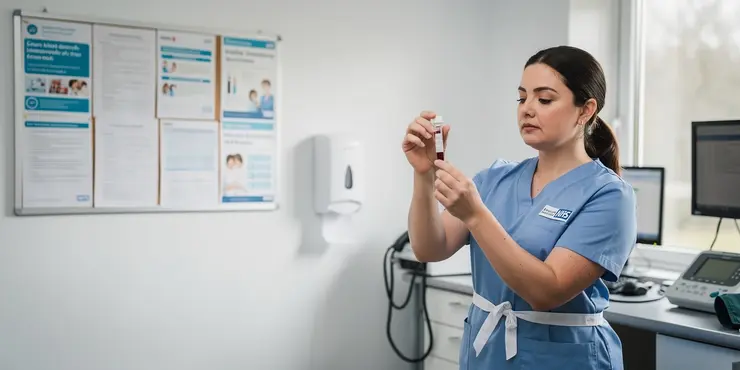
What is the most common disease transmitted by blood transfusion?
Relevance: 53%
-
What is a blood transfusion?
Relevance: 51%
-
Can you get any prion diseases from blood transfusion?
Relevance: 50%
-
Blood Product Transfusions
Relevance: 48%
-
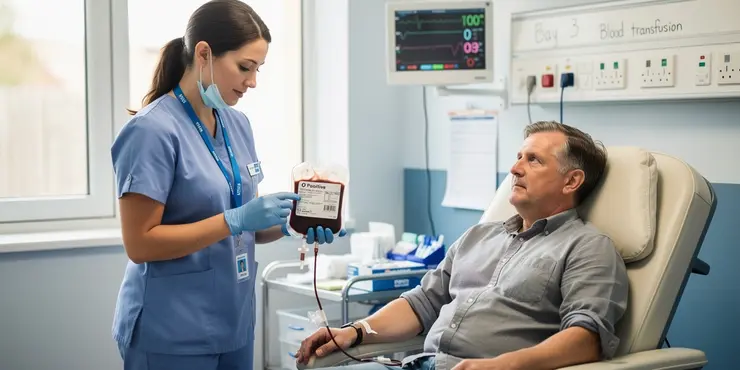
Blood Transfusion
Relevance: 48%
-
Why might someone need a blood transfusion?
Relevance: 48%
-
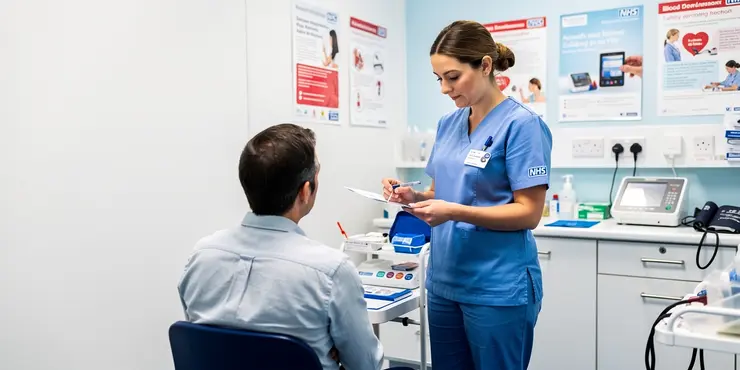
What measures are taken to prevent disease transmission in blood transfusions?
Relevance: 48%
-
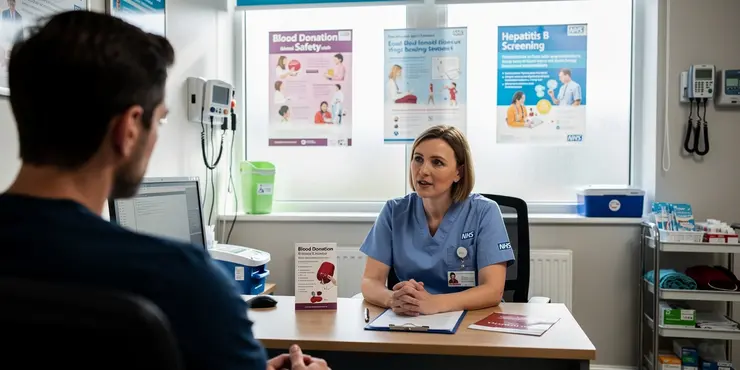
Is Hepatitis B a risk in blood transfusions?
Relevance: 47%
-
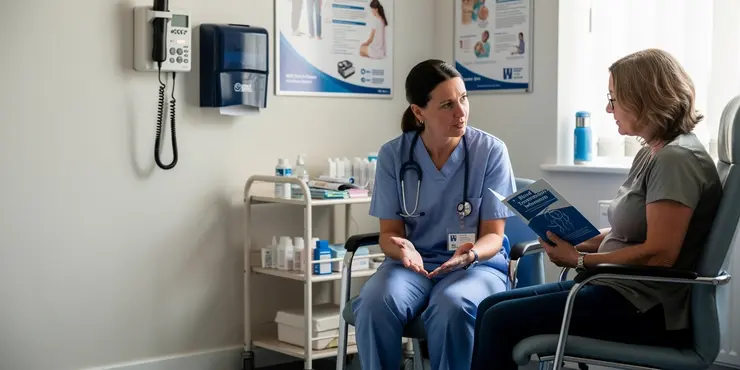
Are there risks associated with blood transfusions?
Relevance: 46%
-
What are some common reasons blood transfusions are needed?
Relevance: 46%
-
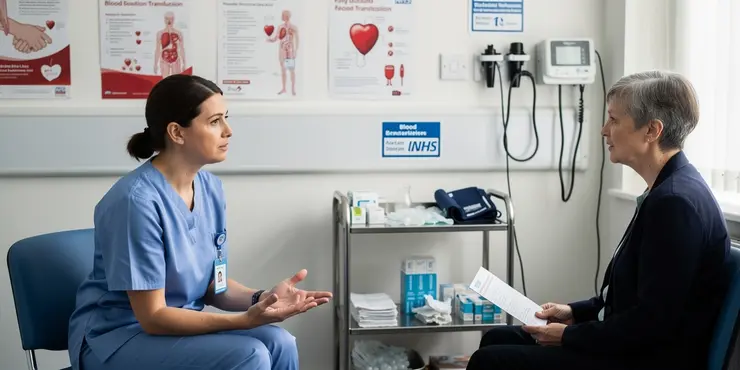
Is HTLV a risk in blood transfusions?
Relevance: 46%
-
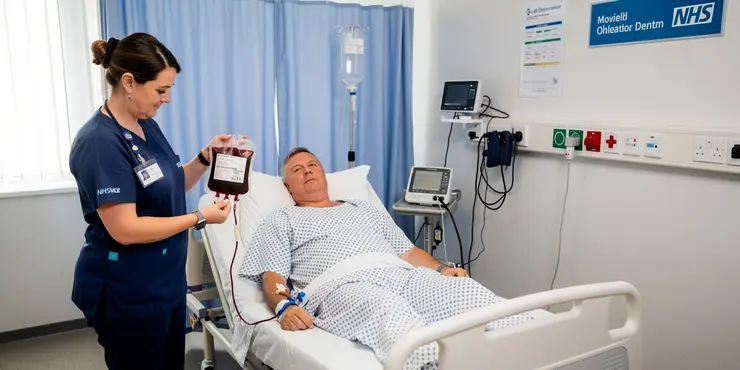
What types of blood products can be transfused?
Relevance: 44%
-
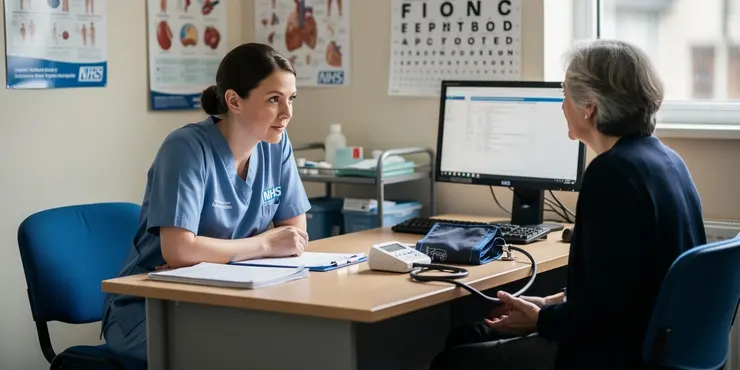
Can syphilis be transmitted via blood transfusion?
Relevance: 44%
-
Is there an age limit for receiving blood transfusions?
Relevance: 44%
-
Can certain medical conditions prevent receiving blood transfusions?
Relevance: 44%
-
Is malaria still a concern for blood transfusion safety?
Relevance: 44%
-
How long does a blood transfusion take?
Relevance: 42%
-
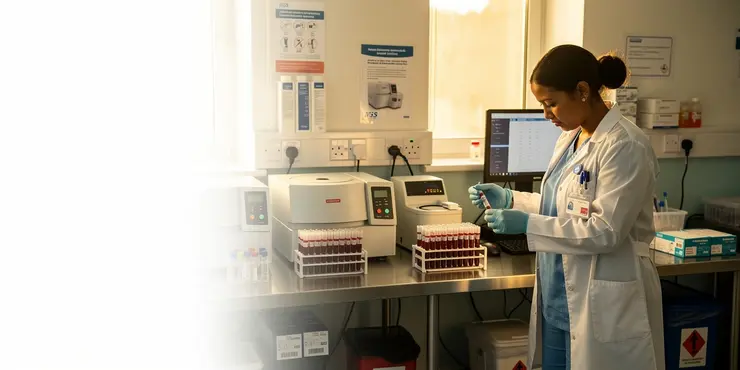
How do healthcare providers match blood for transfusions?
Relevance: 42%
-
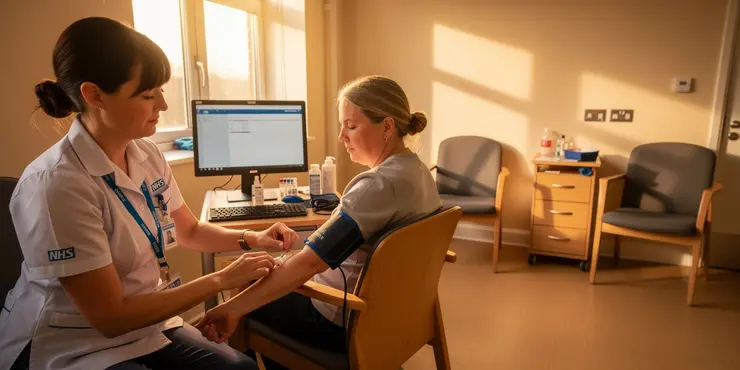
How is blood screened to prevent disease transmission?
Relevance: 42%
-
Is Zika virus screened for in blood transfusions?
Relevance: 42%
-
Can bacterial infections be transmitted through blood transfusion?
Relevance: 42%
-
Can HIV be transmitted through blood transfusions?
Relevance: 41%
-
Can Dengue fever be transmitted through blood transfusions?
Relevance: 41%
-
Can someone have a reaction to a mismatched blood transfusion?
Relevance: 41%
-
Can people of any blood type receive a transfusion of any blood type?
Relevance: 40%
-
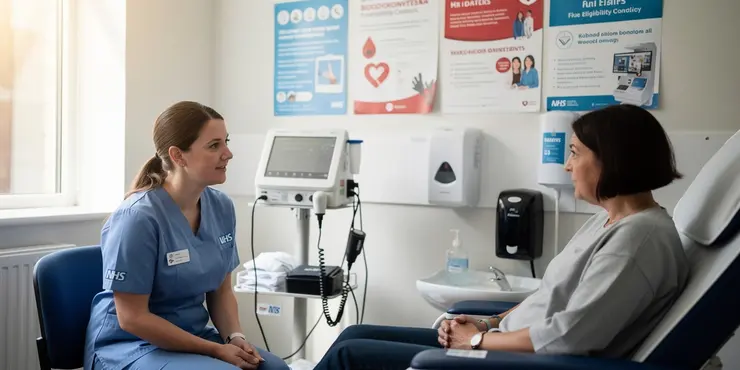
Can COVID-19 be transmitted through blood transfusions?
Relevance: 40%
-
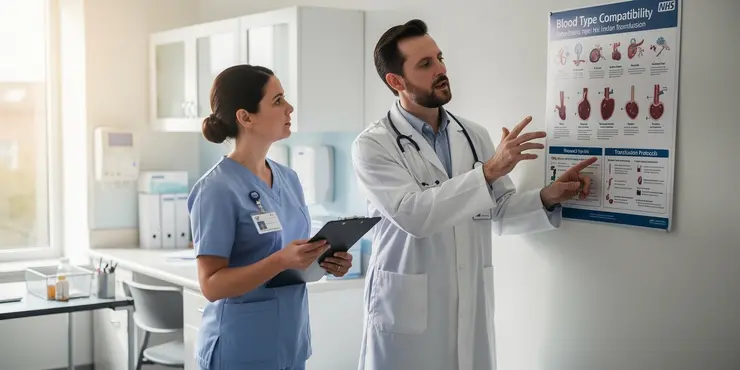
How do doctors determine how much blood is needed for a transfusion?
Relevance: 40%
-
Is blood used for transfusions safe?
Relevance: 36%
-
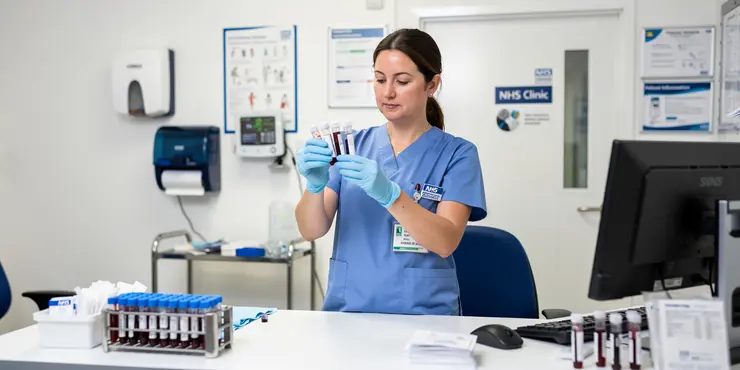
What other viruses are tested for in blood donations?
Relevance: 36%
-
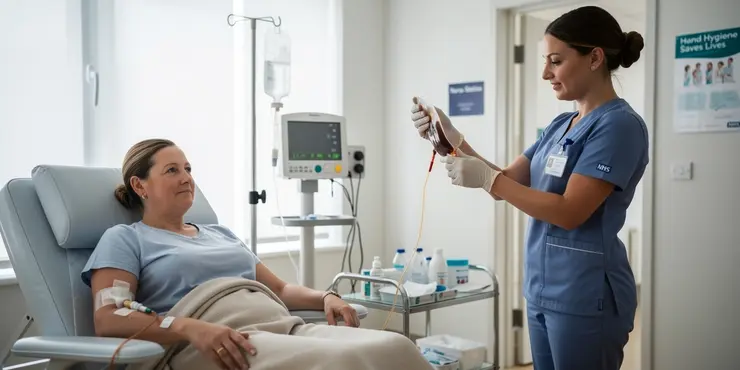
What is plasma, and why might it be transfused?
Relevance: 35%
-
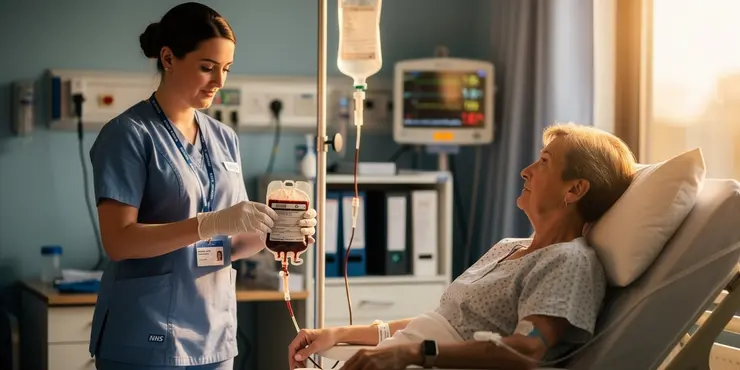
Can cytomegalovirus (CMV) be spread through transfusions?
Relevance: 32%
-
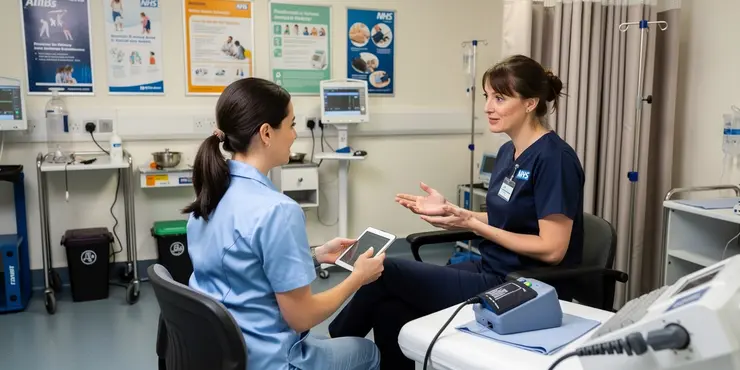
Are there global differences in screening for blood transfusions?
Relevance: 32%
-
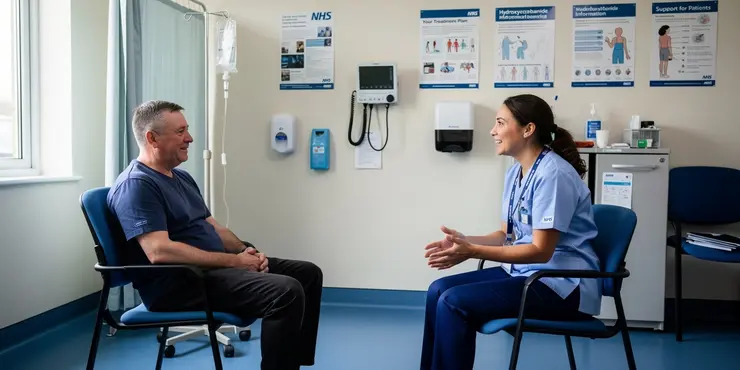
How is sickle cell disease treated?
Relevance: 31%
-
Why is blood donation history important in preventing disease transmission?
Relevance: 30%
-
What should a patient expect after a blood transfusion?
Relevance: 29%
-
What kind of follow-up care is needed after a blood transfusion?
Relevance: 28%
-
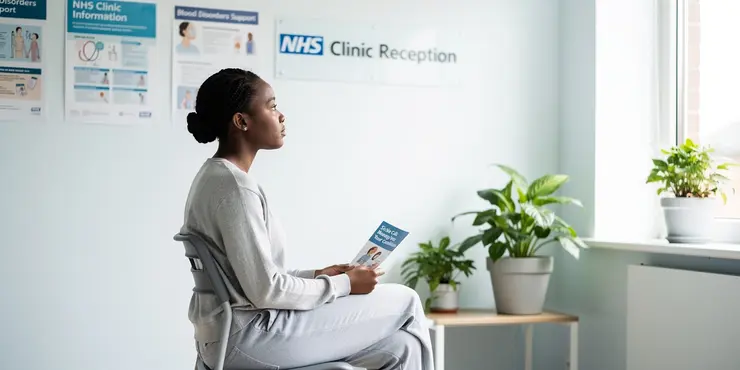
What is sickle cell disease?
Relevance: 27%
Introduction to Chagas Disease
Chagas disease, also known as American trypanosomiasis, is a parasitic disease caused by the Trypanosoma cruzi parasite. It is primarily transmitted to humans through contact with the feces of triatomine bugs, often called "kissing bugs." However, the disease can also be transmitted through blood transfusions, organ transplantation, congenital transfer, and less commonly, through consumption of contaminated food or drink. Although Chagas disease is endemic to Latin America, global migration has made it a concern in non-endemic regions, including Europe.
Blood Transfusion and Chagas Disease
Blood transfusion practices in the UK are highly regulated to ensure the safety of both donors and recipients. Nevertheless, the possibility of transmitting Chagas disease through blood transfusions remains a concern. This risk exists because individuals from endemic areas, who may be asymptomatic carriers of Trypanosoma cruzi, can donate blood. If the blood is not screened adequately, there is a potential risk of transmission to recipients.
Regulations and Screening
The UK Blood Transfusion and Tissue Transplantation Services implement stringent screening processes to minimize the risk of transmitting infections through transfusions. Blood donors are carefully screened for various infectious diseases, including Trypanosoma cruzi. Individuals who have lived in or visited areas where Chagas disease is endemic, such as parts of Latin America, may face restrictions or undergo additional screening before their blood can be used.
As per guidelines, specific testing for Trypanosoma cruzi is conducted on blood donations from at-risk individuals. These measures have significantly reduced the likelihood of transmission through transfusion. The tests are designed to detect the presence of antibodies against Trypanosoma cruzi, indicating potential exposure or infection.
Prevention Efforts
The UK continues to enhance its strategies for preventing Chagas disease transmission through blood transfusions. Public health initiatives aim to increase awareness about the disease, particularly among healthcare providers, blood donors, and the general public. Education and outreach efforts are crucial in identifying at-risk populations and advising them about the implications of blood donation.
Conclusion
While Chagas disease is not endemic to the UK, the global nature of travel and migration necessitates vigilance in blood transfusion practices. The comprehensive screening protocols in place significantly mitigate the risk of transmitting Chagas disease through transfusions. Ongoing awareness and improvements in testing technologies are essential components in maintaining the safety and integrity of the blood supply. As long as effective screening measures remain in place, the risk of Chagas disease transmission via blood transfusion in the UK is minimal but warrants continual monitoring and adaptation to emerging challenges.
Introduction to Chagas Disease
Chagas disease is a sickness you can get from a tiny bug called the Trypanosoma cruzi parasite. People often get it from a bug nicknamed the "kissing bug." This bug can poop near you when it bites, and that's how you can catch the disease. There are other ways to get it too, like through dirty blood, organ swaps, from mom to baby, or sick food and drinks. Even though this disease is usually found in Latin America, people moving around the world have spread it to places like Europe.
Blood Transfusion and Chagas Disease
In the UK, we check blood really carefully for safety before using it. But there's still a small chance that Chagas disease might spread if someone from a place where the disease is common donates blood. Sometimes, they might not feel or look sick, but the disease could still be inside them. If blood is not checked right, it can pass the disease to someone else.
Regulations and Screening
In the UK, blood donation centers have strong rules to stop the spread of diseases. They check blood for things that can make people sick, like Trypanosoma cruzi. People who have been to places where Chagas disease is common might have extra checks or might not be able to donate blood. They do a special test to see if there are signs of Trypanosoma cruzi in the blood. These tests make it much less likely that someone will get Chagas disease from a blood donation.
The test looks for things your body makes when you have the disease. This helps doctors see if someone might have it and stop them from giving blood.
Prevention Efforts
In the UK, people are working hard to stop Chagas disease from spreading through blood donations. They tell people about the disease and how to stay safe. They teach doctors, people who give blood, and everyone else to know about the risks. This helps stop people who might have the disease from giving blood.
Conclusion
Chagas disease doesn't come from the UK, but because people travel a lot, we need to be careful. The UK has good ways to check blood to keep it safe. These checks make the chance of getting Chagas disease from blood donations very small. But, keeping everyone safe means always checking and finding better ways to test. As long as we keep doing this, the risk of spreading Chagas disease in the UK is low. But, we need to keep watching and improving how we stop it from spreading.
Frequently Asked Questions
What is Chagas disease?
Chagas disease is a tropical parasitic disease caused by the protozoan Trypanosoma cruzi. It is primarily transmitted to humans through insect vectors.
Can Chagas disease be transmitted through blood transfusions?
Yes, Chagas disease can be transmitted through blood transfusions if the blood comes from an infected donor.
How does blood screening help prevent the transmission of Chagas disease?
Blood screening detects the presence of Trypanosoma cruzi antibodies in the donor's blood, thereby identifying and excluding infected donors from the blood supply.
Is blood screening for Chagas disease mandatory?
In many countries, especially where Chagas disease is endemic or common, blood screening for Trypanosoma cruzi is mandatory to ensure a safe blood supply.
Which regions of the world are most affected by Chagas disease?
Chagas disease is most prevalent in Latin America but can also be found in North America and other non-endemic regions due to migration.
What are the symptoms of Chagas disease?
Symptoms can vary but might include fever, swelling around the site of infection during the acute phase, and more severe symptoms like heart or digestive system issues in the chronic phase.
What measures are taken by blood banks to prevent Chagas disease transmission?
Blood banks implement stringent screening procedures, including serological tests and questionnaires to identify potential infections in donors.
Is there a treatment for donated blood found to be infected with Trypanosoma cruzi?
Infected blood is not used for transfusion; thus, there is no treatment to make infected blood safe. Instead, strict screening prevents its use.
Can a person with Chagas disease donate blood?
No, individuals diagnosed with Chagas disease are generally deferred from donating blood to prevent transmission risk.
How long does it take to test blood for Chagas disease?
The testing process can vary but typically takes a few days as part of the routine screening done by blood banks.
What happens if a donor tests positive for Chagas disease antibodies?
Donors who test positive for Chagas disease antibodies are usually informed, counseled, and deferred from future donations.
Has the risk of transmitting Chagas disease through blood transfusions decreased?
Yes, due to improved screening processes and increased awareness, the risk of transmitting Chagas disease through blood transfusions has significantly decreased.
Can Chagas disease become a concern outside of endemic regions?
Chagas disease can be a concern in non-endemic regions due to migration patterns, which is why screening is important globally.
Are there any blood substitutes that could eliminate the risk of Chagas disease transmission?
While research on blood substitutes continues, none are widely available or approved as a complete substitute for human blood transfusions yet.
What is the role of the World Health Organization (WHO) regarding Chagas disease and blood safety?
The WHO provides guidance and support for implementing safety standards and protocols to reduce the transmission of diseases, including Chagas, through blood transfusions.
How do health organizations address the risk of Chagas disease in blood donations?
Health organizations establish guidelines, perform routine screenings, and promote awareness to mitigate the risk of Chagas disease in blood donations.
Why is blood donation safety important in the context of Chagas disease?
Ensuring the safety of donated blood is crucial to prevent the spread of infectious diseases like Chagas to vulnerable patients needing transfusions.
What advancements have been made in technology to detect Chagas disease in blood donations?
Advancements include highly sensitive serological and molecular assays that improve the detection of Chagas disease in blood donations.
Can blood from previously infected individuals ever be used if they had Chagas disease?
Generally, blood from individuals who have had Chagas disease is permanently deferred from use, even if they no longer show active infection.
How has global awareness of Chagas disease impacted blood safety measures?
Increased global awareness of Chagas disease has led to stricter blood safety regulations and more comprehensive screening processes worldwide.
What is Chagas disease?
Chagas disease is an illness. It is caused by a tiny bug called a parasite. This bug can make people sick.
Tools like pictures, videos, or talking to a doctor can help you learn more.
Chagas disease is an illness you can get from a tiny bug. This bug carries a germ called Trypanosoma cruzi. The bug bites you and the germ gets into your body, making you sick.
Can you get Chagas disease from a blood transfusion?
Chagas disease can sometimes spread when people get blood from another person. This is called a blood transfusion.
But don't worry! There are tests to check blood and make sure it is safe. Doctors and nurses check this carefully to protect people.
Using support tools like pictures or audio can help some people understand better.
Yes, Chagas disease can spread if an infected person donates blood and someone else receives it.
How does checking blood help stop Chagas disease from spreading?
We can stop Chagas disease from spreading by checking blood before it's used. This makes sure the blood is safe and doesn't have the disease.
If someone gives blood, tests are done to make sure there are no germs that can cause Chagas disease. If the tests find the disease, the blood is not used.
This helps keep people healthy when they need new blood.
To understand better, you can use pictures or watch a video that talks about Chagas disease and blood checks. Ask a grown-up if you have questions.
Blood tests check for Trypanosoma cruzi in blood. This helps find and keep infected donors away from giving blood.
Do you have to test blood for Chagas disease?
In lots of places where Chagas disease happens a lot, they have to check blood to make sure the person does not have the germ called Trypanosoma cruzi. This is important to keep blood safe for people who need it.
Which parts of the world have the most Chagas disease?
Chagas disease mostly happens in Latin America. But people can also find it in North America and other places. This is because people move from one place to another.
What happens if you have Chagas disease?
If you have Chagas disease, you might feel sick.
Here are some things that might happen:
- You might feel very tired.
- You could have a fever, which means your body feels very hot.
- Your tummy might hurt.
- You could get a rash, which is red spots on your skin.
- Your body might feel sore and achy.
- You might feel sick in your tummy and want to throw up.
It is important to tell a doctor if you feel this way, so they can help you.
If reading is hard, you can ask someone you trust to read this to you.
When you are sick, you might have different signs. At first, you could have a fever or feel hot. The place where you got sick might get bigger or swell up. Later, if it gets worse, your heart or tummy could have problems.
How do blood banks stop the spread of Chagas disease?
Blood banks do many things to keep people safe from Chagas disease. Here are some ways they help:
- Testing: Blood banks check all donated blood for Chagas disease. This helps make sure the blood is safe.
- Questions: They ask donors questions to see if they might have Chagas disease. This helps find out if a person could spread the disease.
- Training: Workers at blood banks learn about Chagas disease. They learn how to keep the blood safe and stop the disease.
Some helpful tools and ideas are:
- Read out loud: Listening can make it easier to understand.
- Pictures: Use pictures to help explain things. They can show how blood banks protect people.
Blood banks are very careful. They ask blood donors questions and do special tests to make sure the blood is safe and does not have any infections.
Can doctors make donated blood safe if it has Trypanosoma cruzi?
Trypanosoma cruzi is a germ that can make people sick. It is important to check if donated blood is safe. If the blood has this germ, doctors need to decide what to do.
Sometimes, they can treat the blood to make it safe. Other times, they may not use the blood for donation. Doctors work hard to keep blood safe for people who need it.
Using simple words or pictures can help understand more about this topic. Ask a grown-up or use a video to explain it better.
Doctors do not use blood that has germs for transfusions. So, there is no way to make this blood safe. Instead, they check all blood very carefully to make sure it is safe to use.
Can someone with Chagas disease give blood?
If you have Chagas disease, you cannot give blood. This is because the disease can be passed through blood. It's important to keep blood safe for people who need it.
If you want more help, you can talk to a doctor or nurse. They can give you more information and support.
No, people who have Chagas disease cannot give blood. This helps keep others safe from getting the disease.
How long does it take to check blood for Chagas disease?
Checking blood for Chagas disease can take a few days.
If you want to find out more, you can ask a doctor or nurse to help explain. They can use pictures or simple words to help you understand.
Using a calendar can help you keep track of days to know when you will get the results. Tell someone you trust about it so they can remind you if you need help remembering the time.
Blood banks check blood to make sure it is safe. This usually takes a few days.
What if a blood donor has Chagas disease?
If a person gives blood and they find Chagas disease:
- The blood is not used.
- The person is told about their test result.
- The person may need more tests.
If you need help understanding this, you can:
- Ask a trusted person for help.
- Use pictures or videos to learn more.
If you have Chagas disease, you can't give blood. People will tell you, talk to you about it, and ask you not to donate again.
Is it safer now to get blood without catching Chagas disease?
Yes, getting Chagas disease from blood transfusions is much less likely now. This is because people check blood more carefully, and more people know about the disease.
Can Chagas disease be a problem in places where it usually isn't?
Chagas disease is a sickness. It is common in some parts of the world. But it can also be a worry in places it doesn't normally happen.
Here are some simple steps to make reading easier:
- Read slowly and take your time.
- Ask a friend or family member if you need help.
- Use tools that read the text out loud.
- Look for simple videos or pictures that explain Chagas disease.
Chagas disease is a health problem that people can worry about, even in places where it doesn't usually happen. This is because people move from one place to another. This is why it is important to check everyone for the disease all over the world.
Can we use anything instead of real blood to stop Chagas disease from spreading?
Here is what might help:
- Look for fake blood that is safe to use.
- Ask a doctor or nurse for advice.
- Use online videos or drawings to learn more.
Scientists are working hard to make something that can do the same job as blood. But right now, doctors cannot use it to take the place of real human blood.
What does the World Health Organization (WHO) do about Chagas disease and keeping blood safe?
The World Health Organization (WHO) helps people stay healthy. They work with countries to stop Chagas disease. They make sure blood used for medical help is safe.
If you find reading hard, try using tools like reading guides or apps that read aloud. Ask someone to read with you too!
The WHO helps keep people safe from diseases when they get blood from other people. They teach how to stop diseases, like Chagas, from spreading when giving blood.
How do health groups make blood donations safe from Chagas disease?
Health groups make sure the blood is safe. They check for Chagas disease in the blood. This keeps everyone healthy.
You can use pictures or charts to understand this better. A helper can read it to you, too.
Health groups make rules, check blood often, and help people learn more to stop Chagas disease from spreading in blood donations.
Why is it important to make sure giving blood is safe because of Chagas disease?
Giving blood needs to be safe so people do not get diseases. Chagas disease is one that's dangerous.
Chagas disease can spread through blood. This means if someone with the disease gives blood, another person can get it too. We need to be careful so this does not happen.
Doctors test blood before using it. They check for diseases like Chagas. This keeps everyone safe.
If you need help reading about this, a grown-up can explain it to you. There are also apps that read text out loud.
Making sure donated blood is safe is very important. This helps stop the spread of diseases, like Chagas, to people who need blood.
What new tools help find Chagas disease in blood donations?
There are new tools to help find Chagas disease in blood donations. These tools are faster and can find the disease better. They make sure blood donations are safe.
Some tools use special machines and computers. These can look at blood and see if there is a problem.
In some places, they use smart tests. These are quick and easy to use.
To understand better, it's good to use pictures or videos. They can show how these tools work.
If you need, ask someone to read the information with you. They can help explain it more clearly.
There are new tests that help find Chagas disease in blood donations. These tests are really good at finding the disease.
Can people who had Chagas disease give blood?
If someone has had Chagas disease, they usually can't give blood, even if they don't have the disease anymore.
What has happened to blood safety because more people know about Chagas disease?
People know more about Chagas disease now. Because of this, there are new rules to keep blood safe. There are also better ways to check blood in many places around the world.
Useful Links
This website offers general information and is not a substitute for professional advice.
Always seek guidance from qualified professionals.
If you have any medical concerns or need urgent help, contact a healthcare professional or emergency services immediately.
Some of this content was generated with AI assistance. We’ve done our best to keep it accurate, helpful, and human-friendly.
- Ergsy carfully checks the information in the videos we provide here.
- Videos shown by Youtube after a video has completed, have NOT been reviewed by ERGSY.
- To view, click the arrow in centre of video.
- Most of the videos you find here will have subtitles and/or closed captions available.
- You may need to turn these on, and choose your preferred language.
- Go to the video you'd like to watch.
- If closed captions (CC) are available, settings will be visible on the bottom right of the video player.
- To turn on Captions, click settings .
- To turn off Captions, click settings again.
More Items From Ergsy search
-

Is Chagas disease a concern with blood transfusions?
Relevance: 100%
-

Are there any parasites that can be transmitted through blood transfusions?
Relevance: 64%
-

What diseases can be spread by blood transfusions?
Relevance: 61%
-

What is the most common disease transmitted by blood transfusion?
Relevance: 53%
-
What is a blood transfusion?
Relevance: 51%
-
Can you get any prion diseases from blood transfusion?
Relevance: 50%
-
Blood Product Transfusions
Relevance: 48%
-

Blood Transfusion
Relevance: 48%
-
Why might someone need a blood transfusion?
Relevance: 48%
-

What measures are taken to prevent disease transmission in blood transfusions?
Relevance: 48%
-

Is Hepatitis B a risk in blood transfusions?
Relevance: 47%
-

Are there risks associated with blood transfusions?
Relevance: 46%
-
What are some common reasons blood transfusions are needed?
Relevance: 46%
-

Is HTLV a risk in blood transfusions?
Relevance: 46%
-

What types of blood products can be transfused?
Relevance: 44%
-

Can syphilis be transmitted via blood transfusion?
Relevance: 44%
-
Is there an age limit for receiving blood transfusions?
Relevance: 44%
-
Can certain medical conditions prevent receiving blood transfusions?
Relevance: 44%
-
Is malaria still a concern for blood transfusion safety?
Relevance: 44%
-
How long does a blood transfusion take?
Relevance: 42%
-

How do healthcare providers match blood for transfusions?
Relevance: 42%
-

How is blood screened to prevent disease transmission?
Relevance: 42%
-
Is Zika virus screened for in blood transfusions?
Relevance: 42%
-
Can bacterial infections be transmitted through blood transfusion?
Relevance: 42%
-
Can HIV be transmitted through blood transfusions?
Relevance: 41%
-
Can Dengue fever be transmitted through blood transfusions?
Relevance: 41%
-
Can someone have a reaction to a mismatched blood transfusion?
Relevance: 41%
-
Can people of any blood type receive a transfusion of any blood type?
Relevance: 40%
-

Can COVID-19 be transmitted through blood transfusions?
Relevance: 40%
-

How do doctors determine how much blood is needed for a transfusion?
Relevance: 40%
-
Is blood used for transfusions safe?
Relevance: 36%
-

What other viruses are tested for in blood donations?
Relevance: 36%
-

What is plasma, and why might it be transfused?
Relevance: 35%
-

Can cytomegalovirus (CMV) be spread through transfusions?
Relevance: 32%
-

Are there global differences in screening for blood transfusions?
Relevance: 32%
-

How is sickle cell disease treated?
Relevance: 31%
-
Why is blood donation history important in preventing disease transmission?
Relevance: 30%
-
What should a patient expect after a blood transfusion?
Relevance: 29%
-
What kind of follow-up care is needed after a blood transfusion?
Relevance: 28%
-

What is sickle cell disease?
Relevance: 27%


